South Asians Face Rising Tide Of Hate Amid Growing Political Representation: Report
By REENA RATHORE
LOS ANGELES, CA – As South Asians gain unprecedented political visibility in the U.S., they are simultaneously facing an alarming rise in hate-fueled incidents, particularly in the lead-up to the 2024 presidential elections. This troubling online trend has been highlighted in a new report released by the advocacy group Stop AAPI Hate, which revealed a stark spike in anti-South Asian rhetoric and violence between January 2023 and August 2024.
The online threats of violence reached their highest levels in August 2024 after Vice President Kamala Harris was declared a presidential nominee at the Democratic National Convention and Usha Vance, Indian American wife of Republican Vice-Presidential candidate JD Vance, appeared at the Republican National Convention. As their public profiles grew, so did the hate targeted toward South Asians.
The report titled, “Empowered/Imperiled: The Rise of South Asian Representation and Anti-South Asian Racism,” noted that anti-South Asian slurs in these extremist online spaces more than doubled over this period, rising from 23,000 to over 46,000.
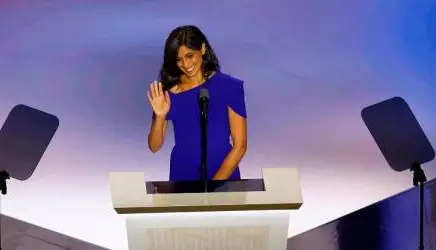
Disturbingly, 60 percent of all anti-Asian slurs tracked during this period were directed at South Asians, making them the most targeted group within the broader Asian American community. The group recorded 973 reports of online threats of violence against Asians in August 2024 alone and at least 75 percent of those threats were directed at South Asian communities.
In addition to Harris and Vance’s growing public profiles this year, Nikki Haley and Vivek Ramaswamy also took the spotlight during the Republican primaries.
“The growing prevalence of anti-South Asian online hate…in 2023 and 2024 tracks with the rise in South Asian political representation this election cycle,” added the report.
It typically takes months or even years for data on in-person hate acts to be released, so online spaces serve as an important early warning system for what’s happening in real time to people offline as well, per the advocacy group.
The report was released at a virtual briefing with U.S. Representatives Ami Bera (D-CA), Pramila Jayapal (D-WA), and Raja Krishnamoorthi (D-IL) as well as South Asian Impact Foundation executive director Chintan Patel.
Stop AAPI Hate partnered with social impact research company Moonshot for this report which showed that many posts perpetuating racist stereotypes about South Asians “stealing jobs” or being “unclean or diseased,” mirrored language used during offline attacks.
“Where is this coming from? Well, one clear origin is the racist stereotypes, whether about Harris or South Asians and immigrants in general, that have been put forward by influential public political figures pushing harmful narratives, like false ideas that Indian people are, quote, taking over the country and that South Asians do not belong here. We see these narratives show up in hate acts,” said Manjusha Kulkarni, co-founder of Stop AAPI Hate and executive director of AAPI Equity Alliance. “Our new findings compel us to sound the alarm that what is happening online is indicative of rising anti-South Asian hate everywhere.”
Jayapal expressed her deep concern over these findings. Jayapal, who began her activism after 9/11, stated that the hatred we are witnessing today isn’t new.
She shared her personal experience with such hatred, reflecting the grim reality that many South Asians face.
“I’ve seen it firsthand in communities across the country and even outside my own home,” she stated, recalling a terrifying incident from two years ago when a man appeared at her home with a gun, shouting, “Go back to India!” and threatening her life.
Jayapal, who is now serving her fourth term in Congress, emphasized the need to understand the connection between extremist language online and real-world violence.
“I think my fear about this is that we are on so many levels normalizing hatred, normalizing racism, and just creating an overall toxic climate that puts us all in danger,” she noted. “And so for us, I think the important thing is to push back… against the ongoing anti-immigrant campaign that’s being waged, often just to gain political points.”
Jayapal drew parallels to the backlash faced by President Barack Obama during his presidency, arguing that Harris’ historic run for the presidency represents a profound shift in the country’s power dynamics, one that is unsettling for those who feel their status is threatened.
“I think it is connected to power…there is a backlash that sometimes comes when people who are perceived as the other…, and it’s about how do we take away that sense that somehow we’re the other,” Jayapal explained. This reaction, rooted in fear and stoked by divisive political rhetoric, is at the heart of the surge in anti-South Asian hate, she said.
Congressman Ami Bera echoed Jayapal’s concerns, sharing that his own campaigns had been targeted by racist imagery, including darkening his skin in campaign materials.
He noted the recent hate incident where anti-Hindu graffiti was scrawled at a BAPS temple in Sacramento, CA, saying, “the only way we can start to address this is to get a good sense of how prevalent this is.” He shared that led by Rep. Raja Krishnamoorthy, all five Indian American members of the Congress, have called on the Department of Justice and FBI to track and quantify these events.
Congressman Krishnamoorthi, co-chair of the Congressional Asian Pacific American Caucus Immigration Task Force, pointed out that this hate often goes hand-in-hand with other forms of xenophobia and hits everyone right in the face. “The rise in South Asian hate goes along with the rise of Islamophobia and Hinduphobia,” he explained, while reflecting on his personal encounters with xenophobia. “I was at a Fourth of July parade this year, and I walked up to a woman wearing a MAGA cap to say, ‘Happy Fourth of July.’ She looked right back at me and said, ‘Go back where you come from.’ I think that it was jarring…it’s something that makes you kind of very concerned about the state of affairs.”
Chintan Patel, executive director of the South Asian Impact Foundation, noted that while the political rise of South Asians has led to a backlash, it has also galvanized the community. “Our community has refused to let that bigotry define us. The rise in hate has only strengthened our resolve to exercise our right at the ballot box and vote for leaders who will fight for a more inclusive democracy and champion diversity as one of its greatest strengths,” said Patel. “And we are not just a voting bloc, we’re the margin of victory, capable of tipping the scales in either direction.”
With nearly 6 million South Asians in the U.S., including large populations in key battleground states like Pennsylvania, Georgia, North Carolina and Michigan, their votes could be pivotal, he added.
Bera urged the South Asian community to stand up against hate, calling on leaders to be visible and vocal in confronting racism. “If I think about my parents’ generation when they immigrated fairly early in the 1950s, so it was a very small community, but it was one of, well, let’s just keep your head down, not attract attention. If something happened, let’s just not say anything. But that’s not where we are today,” he remarked.
Like his colleagues, Krishnamoorthi emphasized the need for collective action, accountability as well as educating constituents to confront these rising threats.
He pointed out that the U.S. is projected to become a majority-minority country by 2050, and that changing demographics are feeding into a fear-based backlash. “There are people fearful about their place in this society with changing demographics,” he said, adding that for South Asian leaders, it’s critical to call out hate and discrimination now to set new norms and expectations for future generations.
“What we’re doing is we’re paving the way for what we want norms to be going forward,” he asserted. “We cannot become numb to this. We can’t just accept it. We can’t tolerate it.”
Kulkarni cited the Stop the Hate program in California, which offers state funding to community-based organizations providing mental health, legal assistance, and other support to hate crime victims.
Organizations like the South Asian Impact Foundation are also working to bridge the gap between local communities and government resources, helping South Asians access support from law enforcement and public officials.

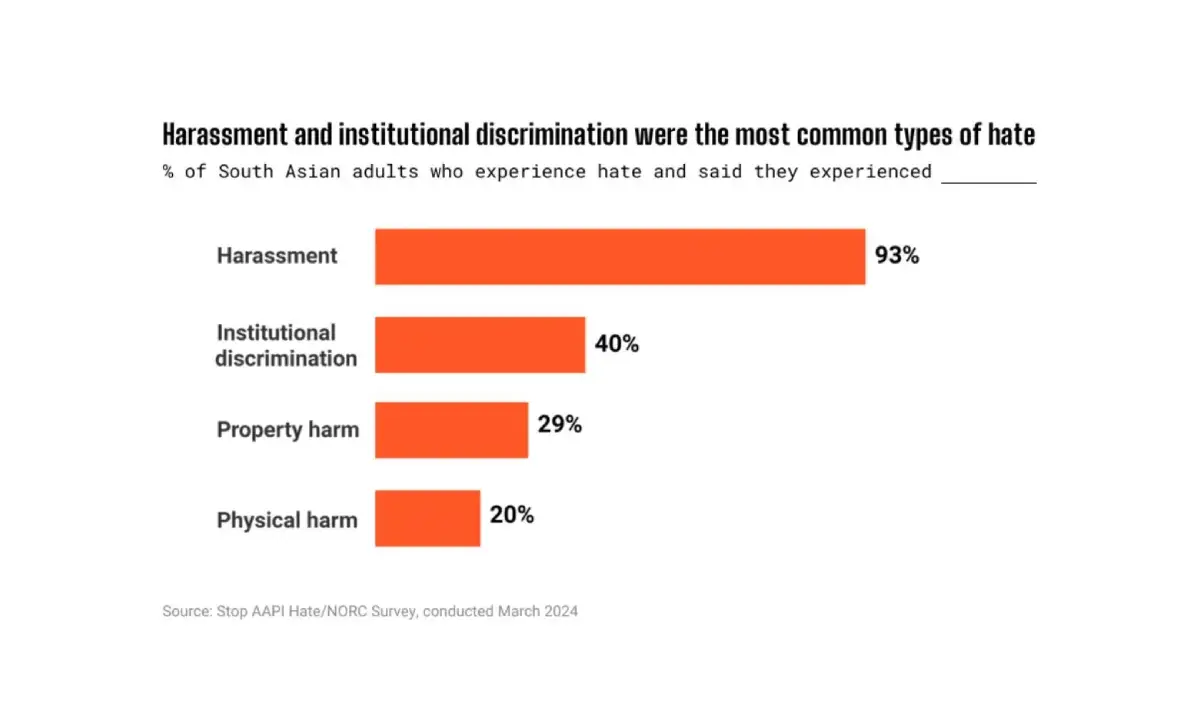
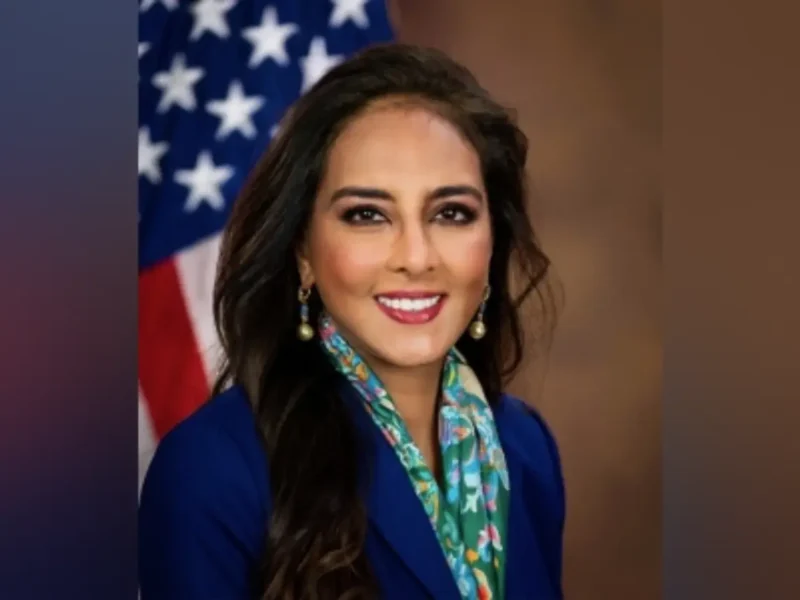
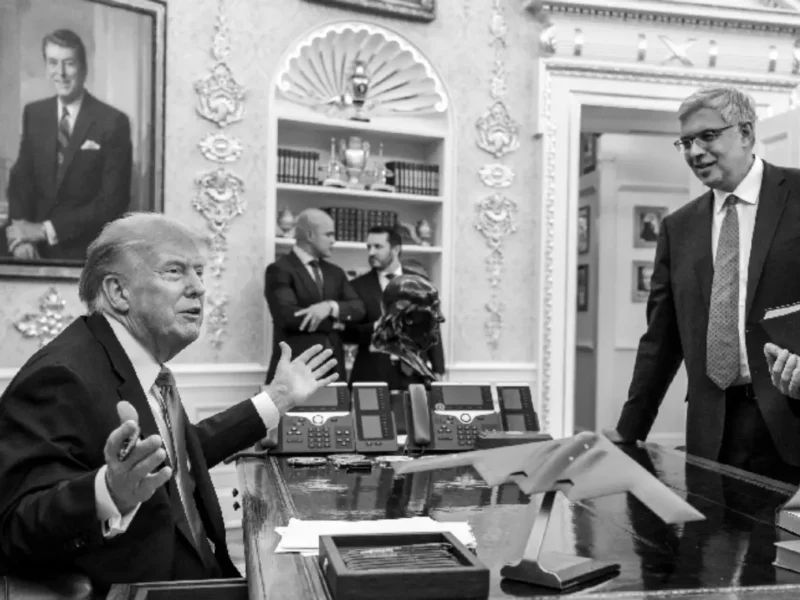
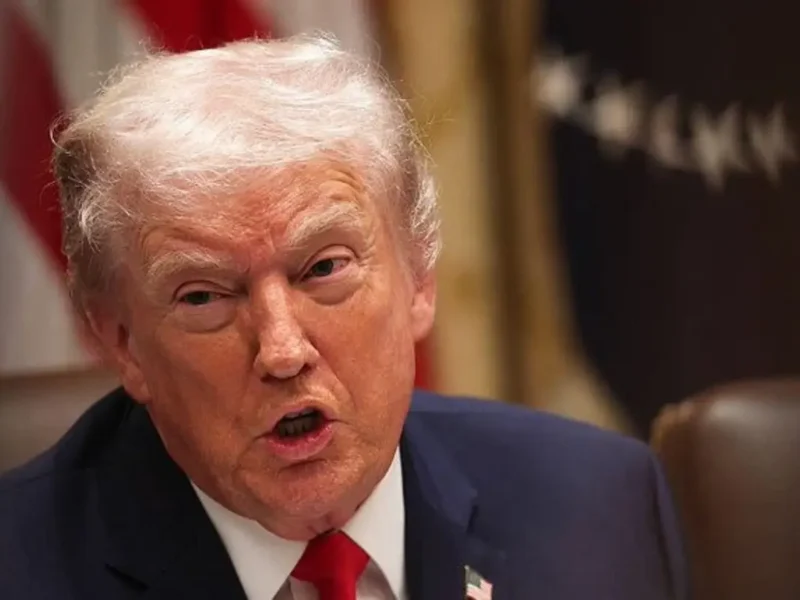
Daljit (Dean)Singh
/
The best strategy at the moment is to lie low and expend our energies in the electoral process to elect the Kamala Harris/Welsh team to the White House. However, these issues should be addressed during the next congressional session.
October 16, 2024